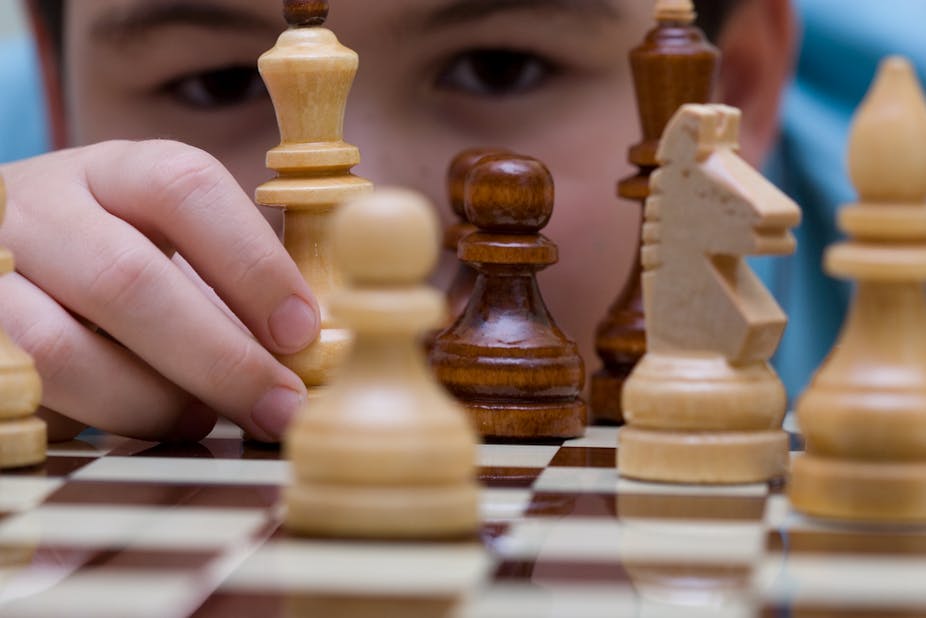The future of chess in Saudi Arabia is in doubt after the country’s most senior cleric, the grand mufti Sheikh Abdul-Aziz al-Sheikh, said it was forbidden under Islam. Al-Sheikh told a television interviewer that chess is “included under gambling” and a “waste of time and money and a cause for hatred and enmity between players”.
The Saudi Chess Association has since appeared to question this view, admitting the grand mufti’s charge but noting that “all sports can fall into being religiously illegal once they involve gambling, directing players away from religious practice … (or) creating hatred between players”. While we wait to see how this plays out, there are several points worth making.
First, there is of course no necessary connection between chess and gambling. Chess is valued as a game and an enjoyable way to spend time in many parts of the world. There are competing claims for its roots in India, China and Persia; but the game is usually agreed to be at least 1,300 years old and the modern version can be traced back to 15th-century southern Europe. Chess is recognised by the International Olympic Committee as a sport – not to mention the Saudi Olympic Committee, as the country’s chess association also points out. There is a campaign to have it included in the 2020 Olympic Games in Tokyo. A decision is due in August.
Far from being a waste of time, chess can be of great benefit to children’s minds. Several academics have looked into this extensively. Chess has been persuasively linked with improving children’s concentration, problem-solving, critical, original and creative thinking – and even mathematical abilities. It is also said to help with memory storage and how young brains manage information – and should not only be perceived as a game for gifted children. Children with special educational needs can improve their abilities to learn and interact with other children if they become involved in school chess programmes and chess clubs.
Children are also equal in a chess match regardless of things that might divide them. Their age, gender, ethnic backgrounds and religious affiliations are of no significance. Chess can cross socio-economic and cultural boundaries and give otherwise disadvantaged children a chance to compete on equal terms.
It is also understood to be particularly helpful for integrating migrant children. While they learn a new language or how to negotiate a new culture, chess can help them engage with other children and adults without needing good linguistic skills. As intensified migration has increased diversity in classrooms, chess (and other games) play an important role.

Game or sport?
In view of all these benefits, I find it disappointing that many children do not continue to play chess into their teenage and adult years. One of the main reasons is that chess becomes highly competitive and time-consuming as people get older. It becomes about organised competitions, with players competing for prizes and maybe even the prestige of becoming a Master.
Indeed, chess is such that children and teenagers can compete and win in these adult competitions (although these tend to be the more gifted ones). And here I must declare an interest: I supported my son in his chess career, first in the local and national competitions for children and in adult leagues when he was a teenager. The latter were conducted after school and at the weekends and involved lengthy chess games that sometimes lasted three hours.

Russian dominance of international chess is thought to be because they have traditionally been very proactive in introducing chess into schools and identifying future champions who can be appropriately trained early. But while this is an opportunity for some, it helps highlight the tension in the chess world because it is perceived as both a game and a recognised sport. All competitive sports require considerable time and commitment and take participation to a different level. This shouldn’t detract from the educational importance of chess, nor the potential for great enjoyment. The Saudi Chess Association itself was in the final stages of implementing a chess in schools programme to boost the game’s grassroots in that country. If it can avoid a total ban, young Saudis stand to reap the benefits.

